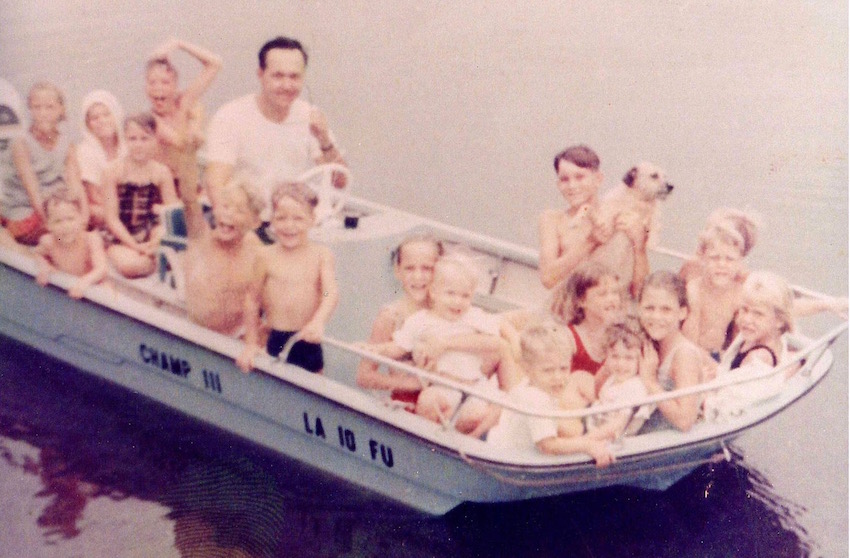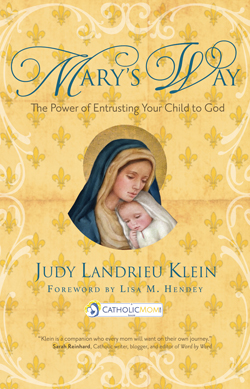
Forty thousand Louisiana families lost their homes this week to what is being called the “Great Flood,” and more homes are about to go under as I write. Meanwhile, I’m reading posts on Facebook that are saying things like: “God is so good! He spared our home. We are so blessed.” And I’m asking very seriously: Really?
So if your home had flooded, would God be less good? And where does that leave the forty thousand now-homeless families in our state? Are they cursed instead of blessed? Or maybe just less blessed than those whose homes were spared?
One of my pet peeves in life is how often we Christians equate “the blessing” with our own physical and material prosperity, and God’s goodness with how well our lives are going on any given day. Without being cognizant of it, we have somehow bought lock, stock and barrel into the “prosperity gospel,” which purports to guarantee blessing in the lives of those who are favored by God—those who pray hard enough, have potent enough “prayer warriors” in their camps, and do this thing called Christianity just right.
This convoluted approach to the Christian faith has seeped deep into our collective Christian psyches, and it seems to reverberate everywhere we turn. It’s also a message that I personally experienced as a despair-provoking battering ram in the midst of multiple life calamities; during the long, painful years I spent with clenched fists asking God: “What does it take to get the flippin’ blessing?”
After many years and much suffering, I finally came to the conclusion that I was asking the wrong question completely. It was then that I began to ask instead: Lord, what IS the blessing?
So what does Jesus actually have to say about “the blessing”? There’s only one place in the Gospels that Jesus repeatedly invokes the word “blessed,” and that is in the Beatitudes. In Luke 6, Jesus uses the word “blessed” four times in a row (nine times in a row in Matthew’s account in Chapter 5). In every case in Luke’s Gospel, the word is followed by an adjective that describes people that most of us would consider anything but blessed: the poor, the hungry, the weeping, the hated, the excluded, and the insulted—those we would probably quickly deem “cursed” today.
I’ve pondered much about Mary—the most blessed woman that ever lived—and how her life would be judged were she alive right now. She was apparently widowed; and then lost her only son to a brutal, violent death upon a cross between two notorious criminals. And that was only after her beloved son was publicly accused of being a blasphemer, a lunatic, and possessed. In spite of this, we find the word “blessed” used repeatedly in regard to Mary; starting when Elizabeth proclaims to her in a loud voice: “Most blessed are you among women, and blessed is the fruit of your womb…blessed are you who believed that what was spoken to you by the Lord would be fulfilled” (Luke 1:42-45). We hear those words again in reference to Mary when “a woman from the crowd” cries out to Jesus saying, “Blessed is the womb that carried you and the breasts at which you nursed” (Luke 11:27-28). Jesus’ response—“Rather, blessed are those who hear the word of God and observe it”—is an implicit reference to his mother’s unwavering faith in God that echoes the words spoken by Elizabeth.
Mary’s life gives us a glimpse of what the blessing looks like, and it is not based on the fact that her life went “well”—at least as the world defines “well.” Instead, her beatitude was found in her steadfast trust in God no matter what trials life brought, in her continuous “yes” to him in the face of great adversity, and in her constant cooperation with his salvific plan, no matter how much it suffering it involved.
This is the blessed state of being to which we are all invited to participate as Christians—a way that defies this world’s way of thinking. It is a way of living in peace and hope that comes only through faith, trust and surrendered abandonment to a God we believe is always good, no matter what happens.
This article was previously published at Aleteia.

 “At that last hour a soul has nothing with which to defend itself except My mercy.” —Diary of St. Faustina, par. 1075
“At that last hour a soul has nothing with which to defend itself except My mercy.” —Diary of St. Faustina, par. 1075


 They will be called oaks of righteousness, the planting of the Lord to display his glory.
They will be called oaks of righteousness, the planting of the Lord to display his glory. Twice recently I've heard parents say: “I did everything right, and my child is still doing (name your favorite sin).” “Good luck with that!” I responded to one of them in a voice that was louder and more vigorous than I intended. Because the lie that if you do it all right, then you’ll be guaranteed a good result is a form of an ancient heresy known as Pelagianism. The old heresy now has a new moniker: the Prosperity Gospel, which purports that if I do X and Y then I will earn Z from God. Oh, how it misses the point of God’s grace!
Twice recently I've heard parents say: “I did everything right, and my child is still doing (name your favorite sin).” “Good luck with that!” I responded to one of them in a voice that was louder and more vigorous than I intended. Because the lie that if you do it all right, then you’ll be guaranteed a good result is a form of an ancient heresy known as Pelagianism. The old heresy now has a new moniker: the Prosperity Gospel, which purports that if I do X and Y then I will earn Z from God. Oh, how it misses the point of God’s grace!


 To peruse the comments in response last week's blog at
To peruse the comments in response last week's blog at 

